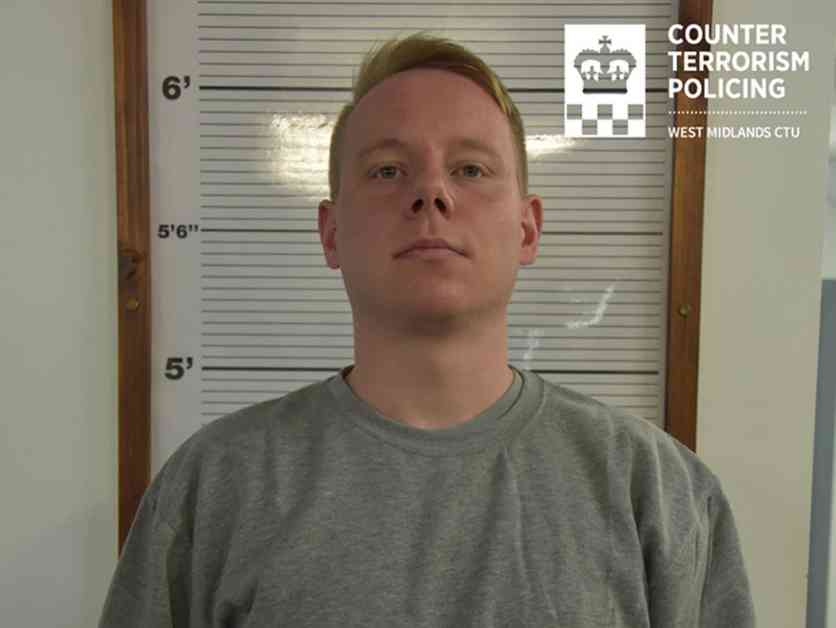A man obsessed with Nazis, Callum Ulysses Parslow, was found guilty of attempted murder after stabbing an asylum seeker, Nahom Hagos, at a hotel in Worcestershire. Parslow claimed it was his duty to England to carry out the attack, which he planned meticulously. He targeted Hagos, who is originally from East Africa, at the Pear Tree Inn as a protest against small boat crossings.
Parslow, who denied attempted murder but admitted to wounding, was convicted after a trial where it was revealed that he had a tattoo of Adolf Hitler’s signature on his forearm. His actions were driven by an extreme right-wing ideology, and he identified and targeted Hagos based on his ethnicity.
The court heard that Parslow ran off towards a canal after the stabbing, with blood on his hands. He then attempted to post a manifesto document online, tagging prominent figures like Tommy Robinson and various politicians. In the manifesto, he claimed he was doing his duty to England by trying to “exterminate” his victim and railed against what he called the enemies of nature and England, including Jews, Marxists, and Globalists.
Parslow’s flat was searched and items like a second knife, an axe, a metal baseball bat, a swastika armband, a Nazi-era medallion, and copies of Mein Kampf were recovered. The court also heard that he attempted to tag several public figures in his manifesto, including Laurence Fox, Donald Trump, and Boris Johnson.
After the stabbing, Parslow was remanded in custody and will be sentenced at a later date. The jury was shown CCTV footage of the attack, where Hagos was seen fleeing in distress after being attacked while eating a meal. He managed to escape into the main reception area of the hotel, where the manager locked the front door to prevent Parslow from re-entering.
Hagos described his survival as a miracle and credited God for saving him. He was later taken to the hospital by the hotel manager and a builder in a van, as he was losing too much blood. Fortunately, his wound did not penetrate any vital organs, and he was able to recover.
The trial highlighted the dangers of extremist ideologies and the impact they can have on individuals and communities. It also shed light on the prevalence of hate crimes and the need for greater awareness and action to combat such acts of violence. Hagos’ survival serves as a reminder of the resilience and strength of those targeted by hate and discrimination.












